If you are a foreigner looking to invest in property in Singapore, there are rules and regulations you need to know. While foreigners can purchase both public and private properties, there are restrictions on what you can and cannot buy. For instance, under the Residential Property Act, foreigners are restricted from purchasing landed properties in Singapore.
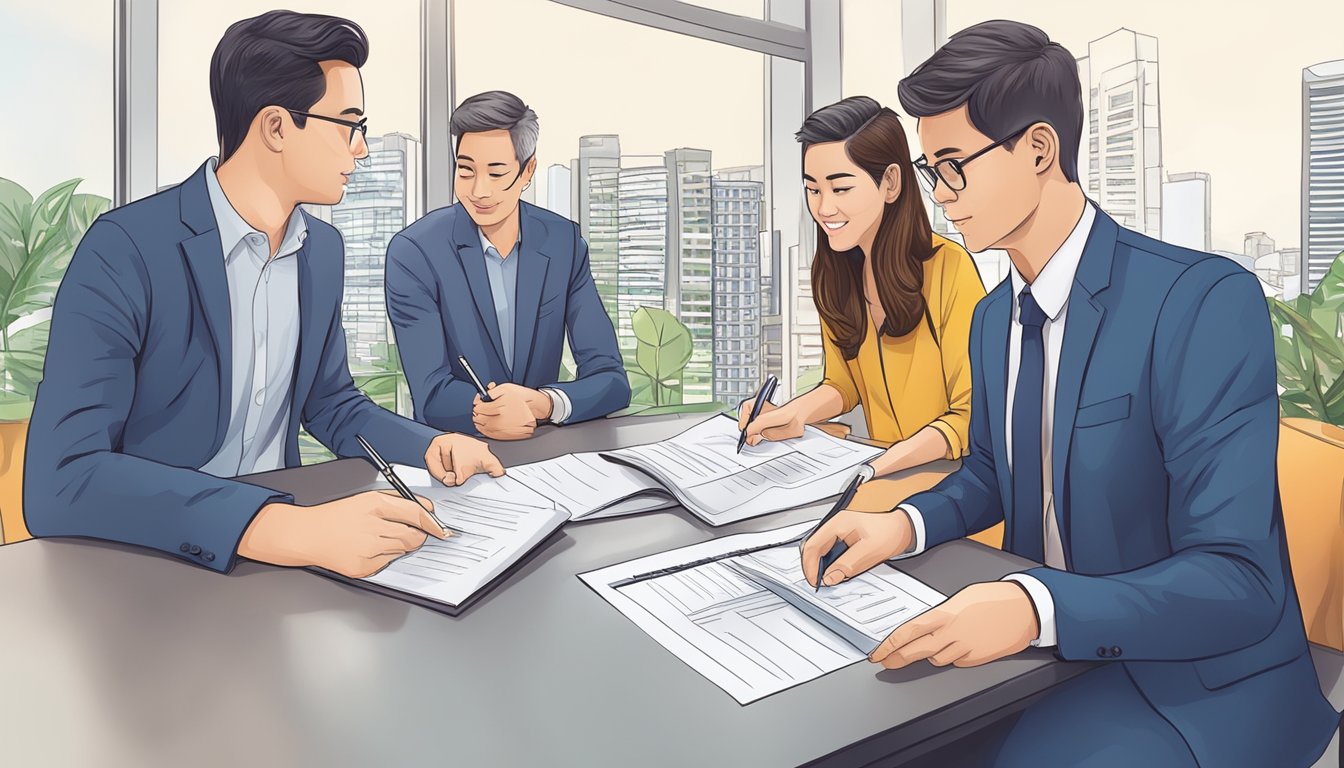
To be eligible to buy property in Singapore as a foreigner, you need to satisfy certain criteria. This includes obtaining approval from the Singapore Land Authority (SLA) for certain types of properties. The SLA will assess your request on a case-by-case basis, taking into account factors such as the depth of your ties to Singapore, whether you are a Permanent Resident (PR), and how long you have been living and working in Singapore.
In addition to eligibility criteria, there are financial considerations to take into account when buying property in Singapore as a foreigner. For example, you will need to pay Additional Buyer’s Stamp Duty (ABSD) on top of the purchase price. This can range from 5% to 20% of the property value, depending on your residency status and the number of properties you already own in Singapore.
Key Takeaways
- Foreigners are restricted from purchasing landed properties in Singapore.
- Eligibility criteria for buying property in Singapore as a foreigner includes obtaining approval from the Singapore Land Authority (SLA).
- Foreign buyers of property in Singapore are subject to Additional Buyer’s Stamp Duty (ABSD).
Eligibility Criteria for Foreign Buyers
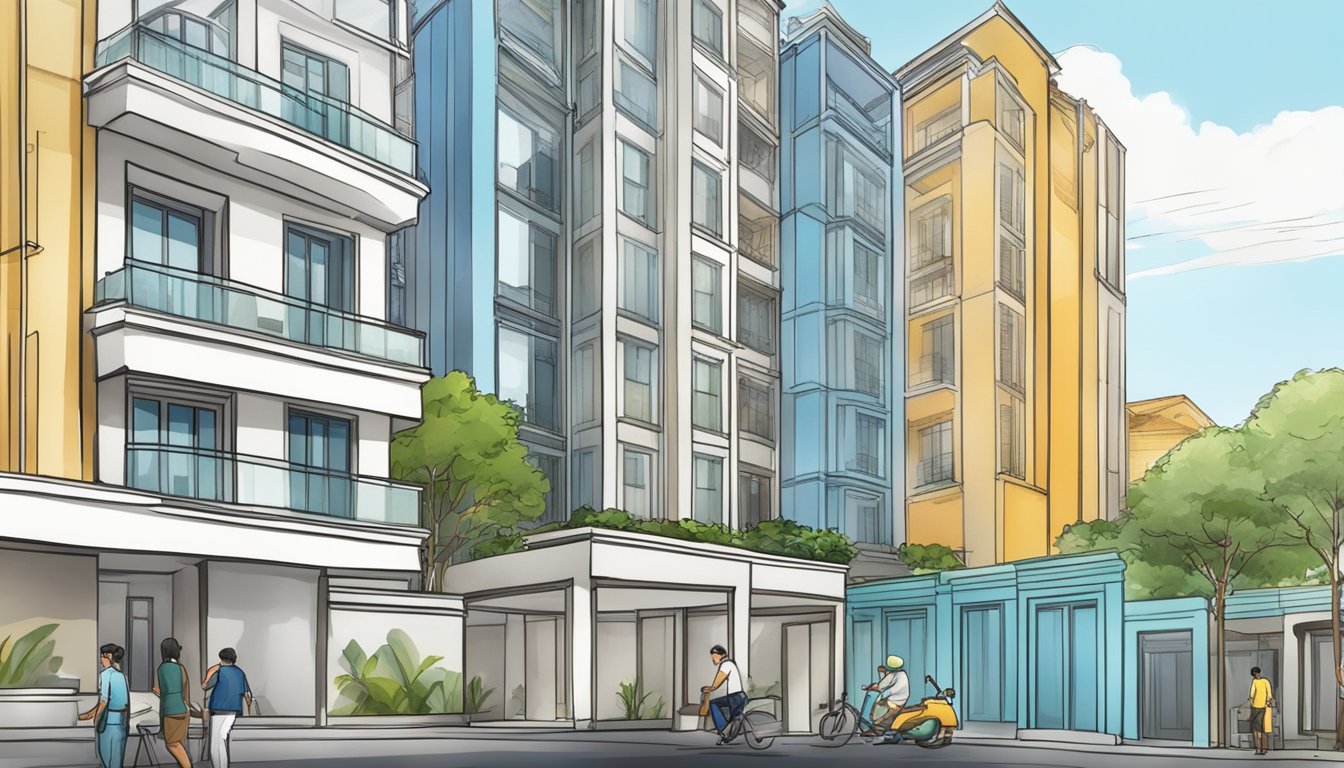
As a foreigner looking to purchase property in Singapore, there are certain eligibility criteria you must meet. These criteria are outlined in the Residential Property Act, which regulates the purchase of residential property by foreigners in Singapore.
Understanding the Residential Property Act
The Residential Property Act was introduced in 1973 to regulate the ownership of residential property by foreigners in Singapore. Under the act, foreigners are defined as individuals who are not Singapore citizens, Singapore companies, Singapore limited liability partnerships, or Singapore associations. Singapore Permanent Residents (SPRs) are also considered foreigners for the purposes of the act.
The act divides residential properties in Singapore into two categories: restricted properties and non-restricted properties. Restricted properties are those that require approval from the Singapore Land Authority before they can be purchased by foreigners. Non-restricted properties, on the other hand, can be purchased by foreigners without the need for approval.
Types of Properties Accessible to Foreigners
Foreigners can purchase non-restricted properties such as private condominiums, apartments, and landed properties in Singapore. However, there are restrictions on the purchase of restricted properties such as HDB flats and landed properties.
Foreigners can only purchase HDB flats that have completed the Minimum Occupation Period (MOP) of 5 years. Foreigners are not allowed to purchase executive condominiums (ECs) that are still within the MOP.
Foreigners can purchase landed properties in Sentosa Cove, subject to approval by the Land Dealings Approval Unit (LDAU). For landed properties outside of Sentosa Cove, foreigners must form a Singapore company or limited liability partnership to purchase the property.
In conclusion, as a foreigner looking to purchase property in Singapore, it is important to understand the eligibility criteria and restrictions outlined in the Residential Property Act. By doing so, you can make an informed decision on the type of property you can purchase and ensure a smooth and hassle-free transaction.
Financial Considerations

When purchasing property in Singapore as a foreigner, there are several financial considerations that you need to keep in mind. This section will provide you with a detailed overview of the key financial aspects that you need to consider before investing in Singapore’s property market.
Stamp Duty Obligations
As a foreigner, you will be required to pay both Buyer’s Stamp Duty (BSD) and Additional Buyer’s Stamp Duty (ABSD) when purchasing property in Singapore. The BSD is calculated based on the purchase price of the property, while the ABSD is calculated based on your residency status and the number of properties you currently own in Singapore.
If you are a foreigner purchasing your first residential property in Singapore, you will be required to pay ABSD of 20% of the property’s market value. However, if you are a foreigner who already owns one or more residential properties in Singapore, the ABSD will be higher.
Additional Costs and Legal Fees
In addition to the stamp duty obligations, there are several other costs and legal fees that you need to consider when purchasing property in Singapore. These include:
-
Legal fees: You will need to engage a lawyer to handle the legal aspects of the property purchase. The legal fees can range from $2,500 to $3,500 depending on the complexity of the transaction.
-
Valuation fees: You may also need to engage a professional valuer to determine the market value of the property. The valuation fees can range from $200 to $500.
-
Agent fees: If you engage a property agent to help you with the purchase, you will need to pay a commission of 1% to 2% of the purchase price.
-
Mortgage fees: If you require a mortgage to finance your property purchase, you will need to pay various fees such as processing fees, legal fees, and valuation fees.
It is important to factor in all these costs and fees when calculating the total cost of purchasing a property in Singapore as a foreigner. Keep in mind that property prices in Singapore can be quite high, so it is crucial to have a clear understanding of all the financial obligations involved before making a purchase.
Overall, purchasing property in Singapore as a foreigner can be a complex and expensive process. However, with careful planning and a clear understanding of the financial obligations involved, you can make a well-informed decision and invest in Singapore’s vibrant property market.
Acquisition Process
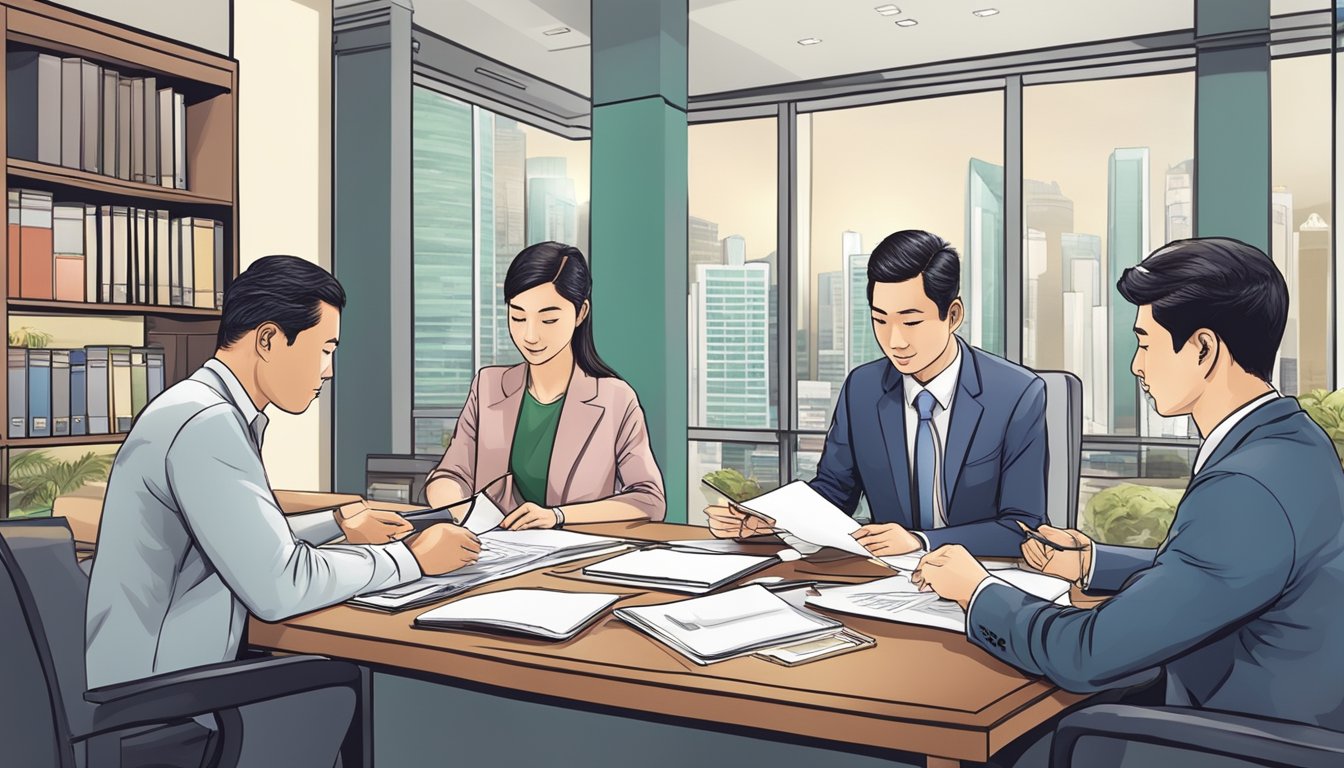
If you’re a foreigner looking to buy property in Singapore, it’s important to understand the acquisition process. This section will guide you through the steps you need to take to secure approval from authorities and complete the purchase.
Securing Approval from Authorities
Before you can buy a property in Singapore, you need to obtain approval from the Singapore Land Authority (SLA). The SLA is responsible for regulating land ownership in the country, and it has a Land Dealings Approval Unit (LDAU) that processes applications from foreigners.
To apply for approval, you need to submit an application form and pay a fee of $1,500. The SLA will assess your application on a case-by-case basis, taking into account factors such as your ties to Singapore, your financial standing, and the type of property you want to buy.
Once you receive approval, you can proceed with the purchase. However, it’s important to note that the approval is valid for six months only. If you don’t complete the purchase within this period, you’ll need to reapply for approval.
Option to Purchase and Sale Agreement
After securing approval, you need to sign an Option to Purchase (OTP) with the seller. The OTP is a legal document that gives you the exclusive right to buy the property within a specified period (usually 14 days).
To secure the OTP, you need to pay a deposit of 1% of the purchase price. If you decide not to proceed with the purchase, you forfeit the deposit. If you proceed with the purchase, the deposit will be applied towards the purchase price.
Once you’ve secured the OTP, you need to sign a Sale and Purchase Agreement (SPA) with the seller. The SPA is a legal document that sets out the terms and conditions of the sale, including the purchase price, payment schedule, and completion date.
Before signing the SPA, it’s important to engage a lawyer to review the document and ensure that everything is in order. Once you’ve signed the SPA and paid the purchase price, the property is legally yours.
In summary, buying property in Singapore as a foreigner involves securing approval from the SLA and signing an OTP and SPA with the seller. By following these steps, you can complete the acquisition process and become a proud property owner in Singapore.
Ownership Regulations
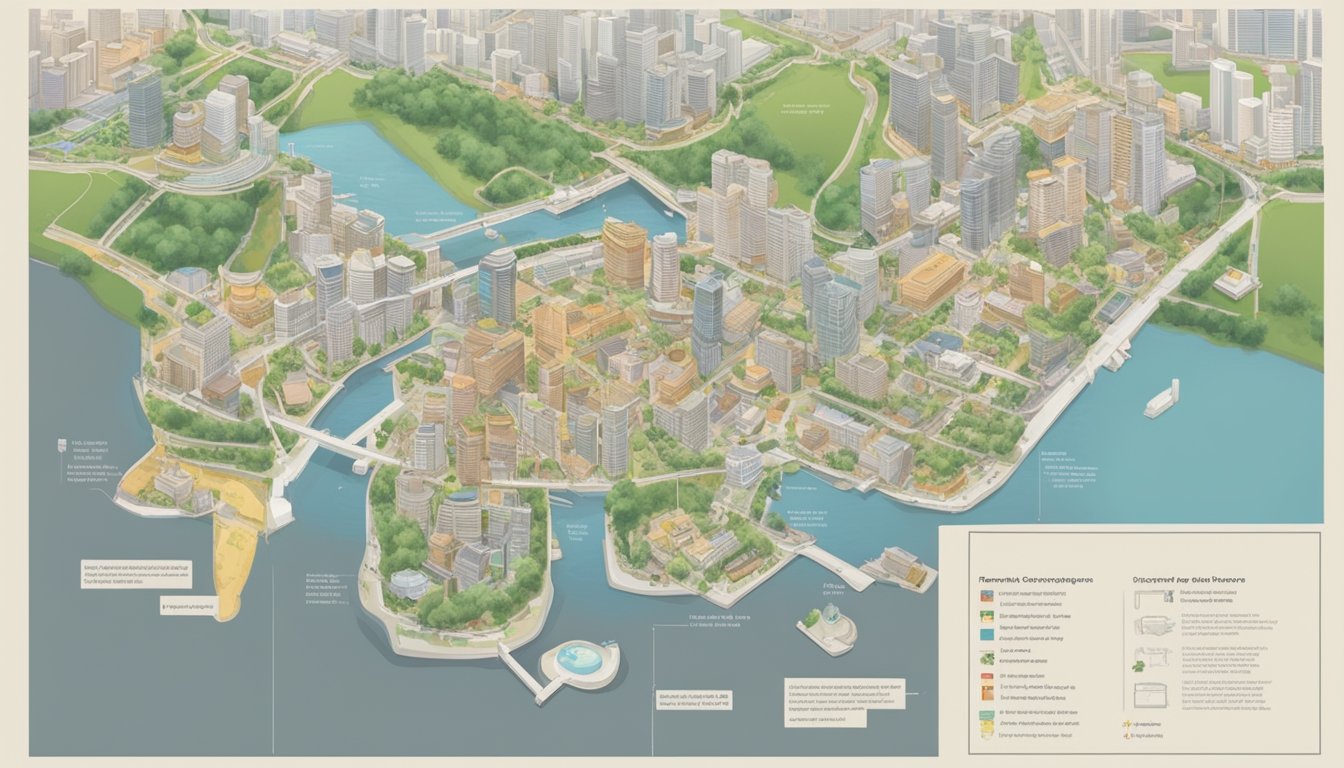
As a foreigner looking to buy property in Singapore, it’s important to understand the ownership regulations. Here are some key things to keep in mind:
Public Housing vs Private Properties
Singapore has a mixed public-private housing system. The Housing and Development Board (HDB) provides affordable public housing to Singapore citizens and permanent residents. Non-permanent residents and foreigners are not eligible to buy HDB flats, except under certain conditions.
On the other hand, private properties are available for purchase by anyone, including foreigners. These include landed properties, condominium units, and leasehold estates. However, there are certain restrictions and regulations that apply to foreign ownership of private properties.
Leasehold and Freehold Tenures
In Singapore, properties can be either leasehold or freehold. Leasehold properties are owned for a fixed period of time, typically 99 years. Freehold properties, on the other hand, have no time limit on ownership.
Foreigners are generally allowed to buy leasehold properties, subject to the approval of the Singapore Land Authority (SLA). However, they are not allowed to buy certain types of landed properties, such as bungalows and semi-detached houses, without approval from the SLA.
Freehold properties, on the other hand, are subject to certain restrictions. Foreigners are not allowed to buy landed properties on freehold land, except in designated areas such as Sentosa Cove. They are also subject to Additional Buyer’s Stamp Duty (ABSD), which is an additional tax on top of the standard Buyer’s Stamp Duty (BSD).
Overall, it’s important to do your research and understand the regulations and restrictions before buying property in Singapore. With the right information and guidance, you can make an informed decision and find the right property for your needs.
After Purchase Considerations
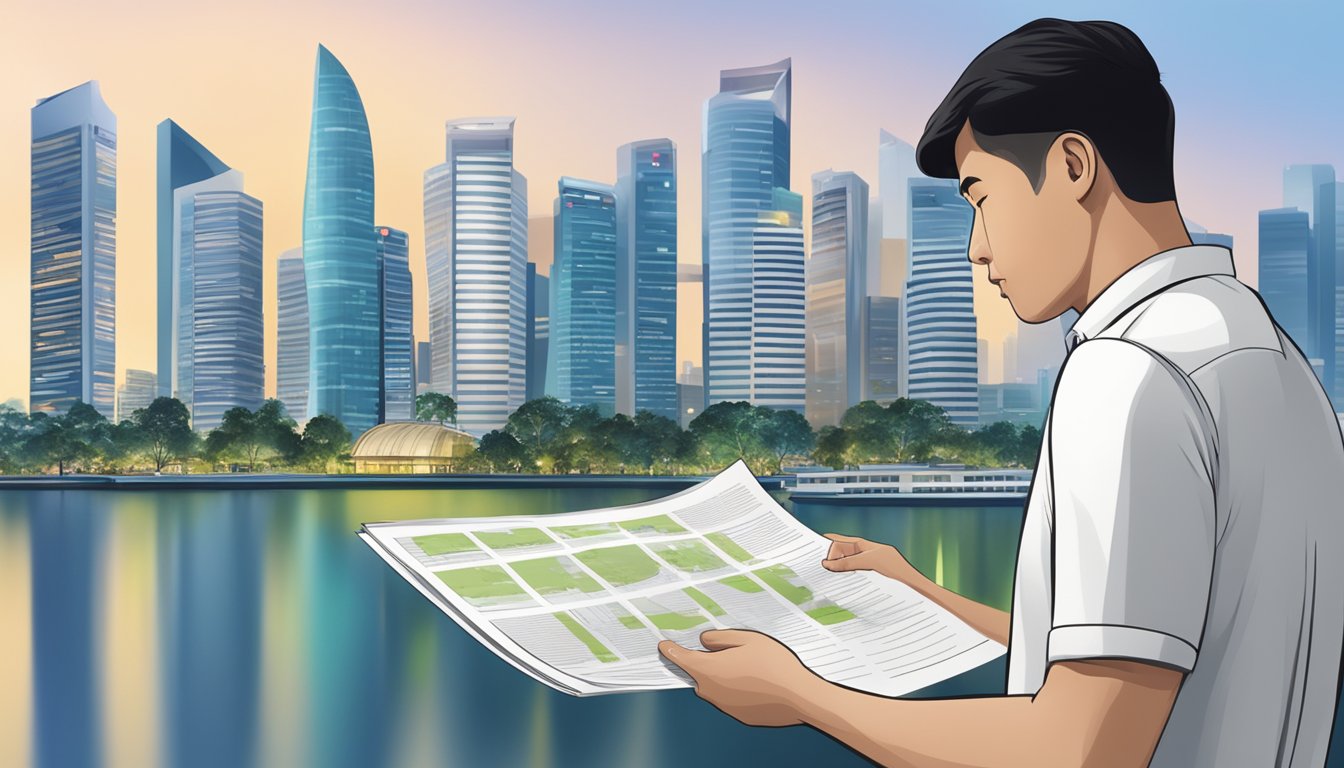
Congratulations on your new property purchase in Singapore! Now that you are a proud owner, there are a few things to keep in mind to ensure a smooth and hassle-free ownership experience.
Property Taxes and Maintenance
As a property owner in Singapore, you will be subject to property taxes and maintenance fees. Property taxes are calculated based on the annual value of your property and are payable to the Inland Revenue Authority of Singapore (IRAS) on a yearly basis. The annual value is determined by the estimated gross annual rent of your property.
In addition to property taxes, you will also be responsible for paying maintenance fees to the management corporation of your property. These fees cover the cost of maintaining the common areas and facilities of your property, such as the swimming pool, gym, and landscaping.
Rental Income and Resale Potential
If you are purchasing the property as an investment, you may be interested in renting it out for rental income. It is important to note that if you are a foreigner, you will be subject to additional taxes on your rental income. The tax rate is currently set at 22% of your gross rental income.
When it comes to resale potential, it is important to keep in mind the property cooling measures implemented by the government. These measures were put in place to prevent property prices from rising too quickly and to ensure a stable property market. As a result, you may face additional taxes and restrictions when selling your property, especially if you are a foreigner.
HDB Resale Flat
If you are purchasing a Housing and Development Board (HDB) resale flat, there are additional considerations to keep in mind. For example, you will need to ensure that you meet the eligibility criteria set by the HDB, such as citizenship and income requirements. You will also need to pay a resale levy if you are purchasing a second subsidized flat from the HDB.
Overall, owning a property in Singapore can be a rewarding experience, both financially and personally. By keeping these considerations in mind, you can ensure a smooth and hassle-free ownership experience.
Frequently Asked Questions

What are the latest stamp duty rates for foreigners purchasing property in Singapore?
As of February 2024, foreigners purchasing residential property in Singapore are subject to an Additional Buyer’s Stamp Duty (ABSD) of 25% of the purchase price. This is in addition to the standard Buyer’s Stamp Duty (BSD) of up to 4% of the purchase price.
Is it possible for foreigners to acquire landed property within Singapore?
Foreigners are generally not allowed to acquire landed property in Singapore, except for those in Sentosa Cove, where special permission from the Singapore Land Authority is required.
What tax implications should a foreigner expect when buying a condominium in Singapore?
Foreigners buying a condominium in Singapore are subject to the same property tax rates as Singaporean citizens. Additionally, they may be subject to income tax if they rent out the property.
Are permanent residents eligible to buy property in Singapore under the same conditions as citizens?
Permanent residents (PRs) are considered “foreigners” under the Residential Property Act. However, they are eligible to buy HDB flats and executive condominiums (ECs) under the same conditions as Singaporean citizens. For private property, PRs are subject to the same ABSD rates as other foreigners.
How does the property acquisition process differ for US citizens in Singapore?
The property acquisition process is generally the same for all foreigners in Singapore, including US citizens. However, US citizens may need to obtain additional documentation, such as a tax identification number from the Inland Revenue Authority of Singapore (IRAS).
Can a foreign individual invest in freehold condominiums or shophouses in Singapore?
Yes, foreigners are allowed to invest in freehold condominiums and shophouses in Singapore. However, they are subject to the same ABSD rates as other foreigners. It is important to note that shophouses are considered commercial properties and may be subject to different regulations and taxes.




